Zanu-PF: Rules, not Gurus
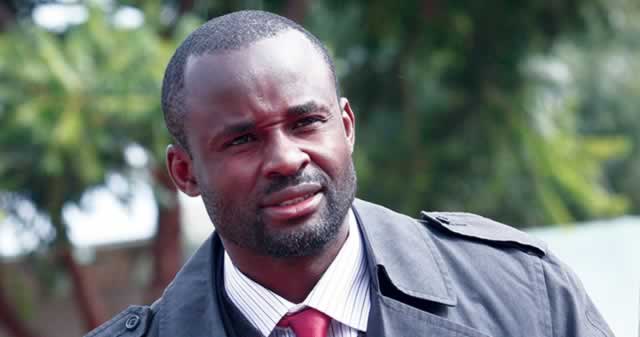
Nathaniel Manheru THE OTHER SIDE
Temba Mliswa thinks he should cut links with Mai Mujuru. He alleges she has failed to defend “the people” when these were being expelled from the party, Zanu-PF
It takes very little to guess what Temba means by “the people”. He did not feel defended when the axe of Zanu-PF swung and landed on him for a decisive chop. At the farm, there is a simmering boundary dispute pitting the former Vice President against her neighbours. This is a pregnant moment for the former Vice President, and for her political prospects and career.
Elsewhere Rugare Gumbo was deep-throating a lady journalist on the prospects of People First, the dream party that is fast receding into a miasma. He stressed he understood why Amai Mujuru was equivocating: having joined the party in 1973, the expulsion of 2015 hit her in staggering ways. But time would come, he promised, when she would pick herself up, take a position and then lead.
I hope the political world is as considerate as a spasmodic bus, and waits at every stop. But this was the innocent part of the interview. What Rugare said, which was never published, was how he saw himself as the only clean character to lead People First. Mujuru, he alleged, faced corruption charges. Mutasa, he further alleged, faced abduction charges, leaving him as the only untarnished soul. Oh, burdensome cleanliness!
The example of Harare East
Undeterred, Zanu-PF’s mighty axe has swung again, claiming more victims. The action and its timing is very clear: Zanu-PF does not fear helping an opposition that might emerge from its own, if ever. Quite the contrary, it is daring it, generously giving it lots of rubble. Judging by the rumble in People First, it is clear the Zanu-PF action is founded on formidable intelligence. It is doubtful if the spat officials will ever regroup politically, regroup meaningfully.
Mutasa, until recently quite vocal, seems to be obeying the involuntary inactivity of rigor mortis already setting in. Meanwhile the two Vice-Presidents are beginning to leave their homes, are beginning to cut visible national profiles as befits their portfolios. They have been criss-crossing the country, addressing diverse audiences, tackling national issues.
Within the party, the handling of Harare East confusion indicated decisiveness, but also gave a clear warning to residual factionalism within the party. Not that there was anything factional about Harare East, much as the media claimed so. Personality clashes, maybe; factional politics no.
The operative rule is very clear: provinces screen candidates and recommend them upwards, to higher echelons. They have their time and portion of the cherry to bite. Harare province did, which is how we ended up with the long shortlist which went for primaries. Those primaries yielded a result, a definite one, with one Mukupe in the lead.
I don’t know him. I don’t need to know him. And that is the disposition up, in higher echelons. But it is decidedly bald for the same leadership which cleared him forward as fit for primaries, to suddenly find fatal faults post-primaries, post-victory, his victory. It does not make sense, save to show a leadership which is partial and therefore unjust, and thus unfit.
Rules and not gurus
The hallmark of leadership is even-handedness. On this one, Harare Province showed how-not-to-do-it. It is in their interest to relent, to comport to the verdict of the Politburo. Or else. Zanu-PF is reconstructing itself, yes by way of personalities. More important, it is reconstructing itself by way of rules of leadership.
Against the background of the Mujuru saga, the cumulative toxicity arising from corrupted selection processes becomes obvious, indeed becomes an outgrowth to be extirpated. The surest way of ensuring a committed cadre – not a beholden one – is to get people to rise the party ladder on the strength of fair and fulfilled rules, not patronage. People must submit to party rules, not party gurus, if the baneful legacy of factionalism is to be overcome.
This is why and how the latest round of expulsions and suspensions speaks more to those in the party, than those facing chastisement, than those affected by them. Let the lesson be read well, so smug complacency gives was to self-introspection. No one, big or small, should imagine their misdeeds in the gamatox era went unknown, unnoticed, nay, unrecorded.
The conspiracy was too grave to invite languid attention. The guilty ones who have transited to post-Congress Zanu-PF, who seem to have survived the chop, simply have been allowed to do so. They are creatures of tender mercies, never heroes at dissembling. Their survival owes nothing to their cleverness. Which is why they must mend their ways.
The worst thing to do in Zanu-PF is to imagine that a new portfolio or a fallen opponent brings you a rung closer to your unholy ambition. Quite the contrary, both might hasten your own demise, make your demise even more dramatic. In Zanu-PF, healthy ambition is what helps you to join it; diligent compliance keeps you in, unconditional loyalty helps you up. Zanu-PF has no clever actors, has no iconoclasts. None. It is an ossified, hierarchical party. Caveat emptor!
Khupe is right
And what happens to Zanu-PF rattles the whole body-politic. Until last week, I was in denial when claims were made and put to me that Tsvangirai and his deputy were at odds. Why would they be, I would ask. Until the issue of conflicting attitude towards participation in by-elections came to the fore. Then I began to believe. Yes, there is an issue on that one, a divisive one too, going by what happened in the MDC past.
And the question is not confined to the southern part of our country. Even here in Harare, the Makones and the Mwonzoras do not fall in with Tsvangirai on that one matter. Such that the potential of the argument to fracture the party across the country is a real one. And Khupe has a better end of the stick. She will have many takers within the party, starting -but not ending – with the southern part of the country.
I agree with Magaisa, although I abhor his stance which seeks to look better than the man he advised, the man he served. When a man you guided degrades to worse levels after you, degrades after your stint, you have much to atone for. But, yes, he is right, this Magaisa fellow.
A boycott can’t be the policy, the response. It can only be a tool, an action within a strategy continuum. More so when dealing with an inveterate political player in the form of Zanu-PF. Suppose Zanu-PF refuses to concede reforms, accepts the MDC-T boycott as a matter of course and choice, then what? You go to war? Khupe and Dabengwa have read Zanu-PF well, better than Magaisa’s Tsvangirai.
Following a political Nimrod
Zanu-PF does not care a hoot about the adjective before its victory in the forthcoming by-elections. It wants a foothold in metros, which it is about to get on a platter. Once in, it will do things ahead of 2018, both in the field and in the house. I can see what Dabengwa and Khupe are trying to do through direct and indirect participation in elections respectively.
Dabengwa thinks and admires the SNP, the Scottish National Party, and its strategy of consolidating an ethnic vote so as to strengthen its hand at Westminster. He hopes to do the same here, not so much to secede, which he knows is a “causa belli”, but as a plank from which to bargain with the winner, Zanu-PF.
But Khupe has a more interesting strategy, assuming she sees it through, together with the likes of Abednico Ncube, the indefatigable political Nimrod. She is participating incognito, that is, by way of the independent candidates she has fielded to avert being another Welshman Ncube.
They are not that many vis-a-vis the whole MDC-T vote and seats. But that representation passes for a significant block vote, a ringing statement on MDC-T and support in the southern part of the country. Therein lies her strength. Should she carry a few seats, she will be able to flaunt these to her leader, use them even to show the value MDC-T did forego through senseless boycotts.
Again, the man from Buhera will look visionless, tactless, more of a zoological than a political creature. And depending on how Tsvangirai takes it, we could be treated to another breach in the MDC-T. Much more, we could see a reconfigured Zapu. Or a new political creature altogether. Or a new make-up at Renewal. Or some alliance with whatever becomes of the undecided Mujuru group. That is how open-ended opposition politics are presently: fatal to some, fertile to others.
Mugabe in Scotland
You can’t contain Mugabe. No, you can’t, this infectious old man who continues to haunt British politics. The native who persistently gnaws the hide of the master. In this week’s Spectator, a Conservative magazine, is a piece by one William Astor, apparently a white man with American roots.
A hundred years ago, his family bought a lodge and an estate on the Isle of Jura, up in mountainous Scotland. They bought these properties from the Campbells, who were Scotts, and whose fortunes had collapsed. With the emphatic SNP win in the recent British elections, the Astors are gnawed by wicked anxieties and questions.
Let William convey his family’s worry: “Following the SNP victory, however, families like us worry that we will find ourselves regarded as foreigners again in our country. The SNP manifesto promises ‘to ensure Scotland’s land reform debate focuses on how Scotland’s land can be best managed in the public interest to ensure it is of benefit to all of the people of Scotland’.
“The worry is that it will not actually be for the benefit of the local community but will hand power straight to the bureaucracy in Edinburgh. Under the SNP, governance has already been centralised there. ‘Benefit to all’ must mean all, not just special interest groups. Are we estate owners now to be nationalised or made to feel so unwelcome that we have to sell up in a Mugabe-style land grab?
“It would be a pity, but we are accused of owning too much. Are we really going to have to defend owning so many acres of hill when 500 acres of hill may be only worth the same or even less than one acre of good farmland in lowlands of Scotland? Is it because we don’t sound Scottish? We should not all have to sound like Rob Roy.
“If the SNP wants is all to speak with a certain type of Scottish accent, what does that say to the many hundreds of thousands in the immigrant community who have lived in Scotland for a long time but still speak with the accent of their birth? Are they not Scottish? We worry that the SNP have concentrated power in the few. They brook no dissent.”
Waiting for Sco-Dera
If a man’s typifying argument amounts to a castle, then, yes, I agree our President bought and owns a castle in Scotland. William Astor need not be a landowner in Scotland. He is a stock character: a landowner in any occupied country, most appropriately Zimbabwe. The Scottish highlands could very well have been any place in Nyanga or Chipinga, with the SNP being Zanu-PF with a white face, white grievance.
Of course the British, Westminster, would remain that, an imperial people, race. Except here is a curious twist here. Leading the colonisation charge in our part of the world were the Scotts: from David Livingstone to many in the occupying column. The Scottish hand was preponderant, something which could explain why Blair and Brown, not Thatcher or Major, had to be Mugabe’s quarrelling partners on land.
Both are Scots, and thus feel keenly the demise of neo-colonial Rhodesia as the diminishing of Scottish influence in world affairs. But for me the real twist is when occupiers abroad become land nationalists at home. When Mugabe’s opponents abroad become his comrades-in-argument, nay, comrades-in-accusations, in British politics.
For the anxieties raised by Astor are anxieties we have heard here. The charges levelled against SNP and its Scottish bureaucracy are charges levelled against Mugabe, Zanu-PF and its Government.
As in Zimbabwe, the English landlords on Scottish land want to be let to continue shooting grouses! In their “landish” reckoning, this amounts to stupendous investment which Scotland badly needs! It does not quite matter where the landlord is, the defence is unvaryingly the same.
We wait to see how Comrade Obama and the EU invokes Z-, sorry, Scodera, and Article 96 of the Cotonou Agreement, to right this major and continuing assault on private property.
Icho!



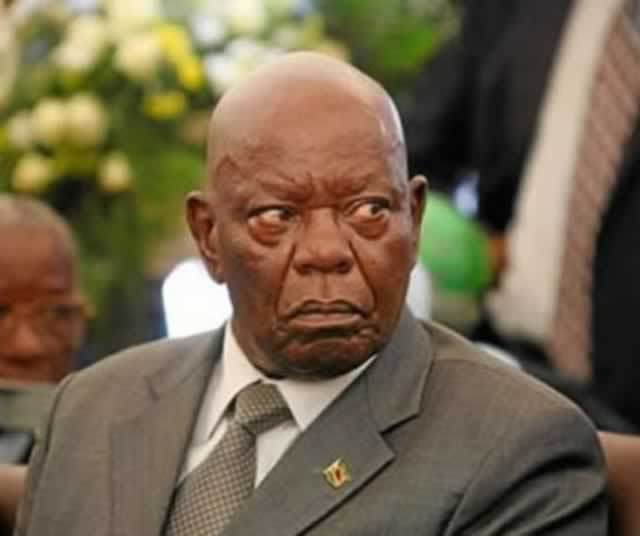
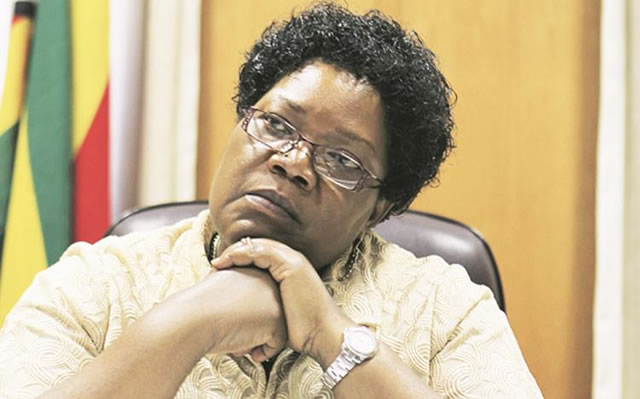
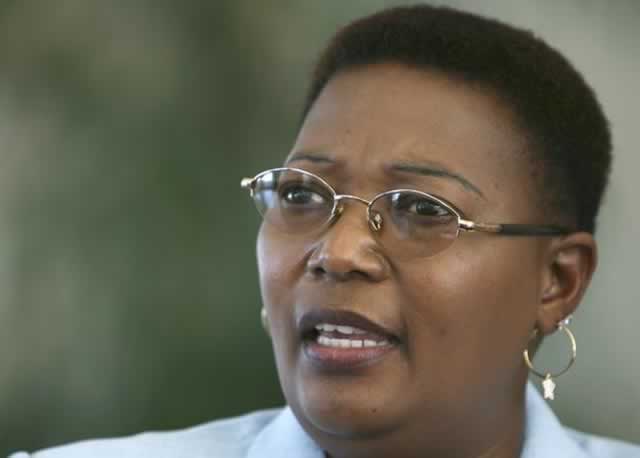
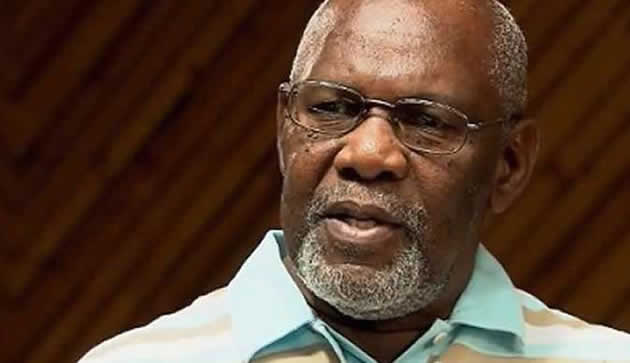






Comments